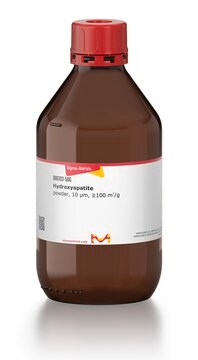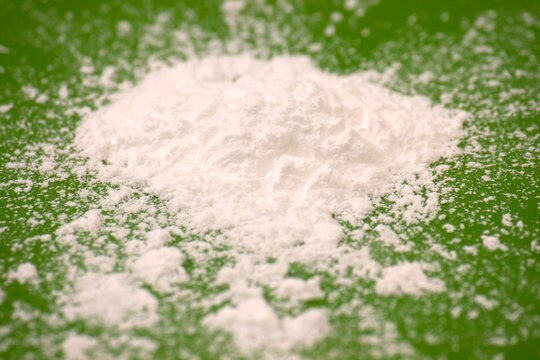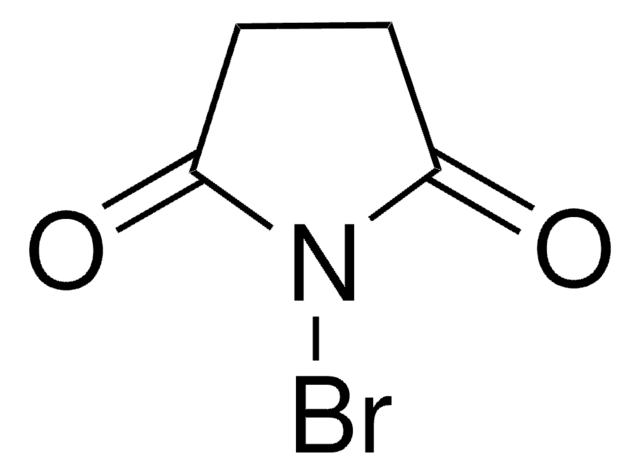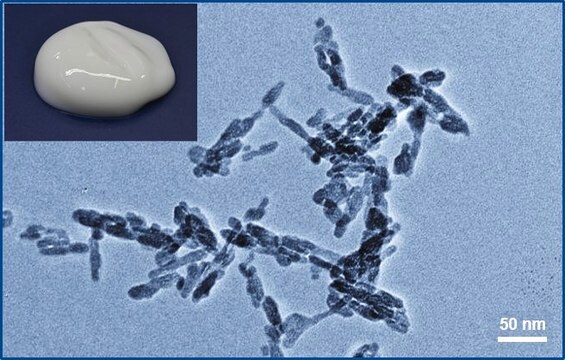289396
Hydroxyapatite
reagent grade, powder, synthetic
Synonym(s):
Calcium phosphate tribasic, Calcium hydroxyphosphate, HAp, Hydroxylapatite, Tribasic calcium phosphate
About This Item
Recommended Products
grade
reagent grade
Quality Level
form
powder
solid
mp
1100 °C (lit.)
solubility
H2O: insoluble(lit.)
SMILES string
[Ca++].[Ca++].[Ca++].[Ca++].O[Ca+].[O-]P([O-])([O-])=O.[O-]P([O-])([O-])=O.[O-]P([O-])([O-])=O
InChI
1S/5Ca.3H3O4P.H2O/c;;;;;3*1-5(2,3)4;/h;;;;;3*(H3,1,2,3,4);1H2/q5*+2;;;;/p-10
InChI key
XYJRXVWERLGGKC-UHFFFAOYSA-D
Looking for similar products? Visit Product Comparison Guide
General description
Application
- for comparison purposes during the preparation of HAp based biocomposites with PVA and collagen.
- for preparation of poly(methyl methacrylate) (PMMA)/hydroxyapatite (HA) by powder liquid method to manufacture denture base composites.
Storage Class Code
13 - Non Combustible Solids
WGK
WGK 1
Flash Point(F)
Not applicable
Flash Point(C)
Not applicable
Personal Protective Equipment
Choose from one of the most recent versions:
Already Own This Product?
Find documentation for the products that you have recently purchased in the Document Library.
Customers Also Viewed
Articles
Innovation in dental restorative materials is driven by the need for biocompatible and natural-appearing restoration alternatives. Conventional dental materials like amalgam and composite resins have inherent disadvantages.
We will explore the technological advances that have contributed toward the progress of 3DP of tissue engineering scaffolds, current materials used to create 3DP scaffolds, and the challenges that remain.
Our team of scientists has experience in all areas of research including Life Science, Material Science, Chemical Synthesis, Chromatography, Analytical and many others.
Contact Technical Service







